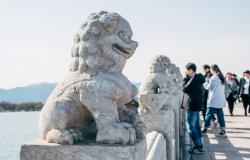China’s World-Making Moment: A Strategic Opening Amid the Ukraine Crisis

Jianyong Yue argues that Trump’s return to the White House offers China a fleeting but strategic chance to reshape the international order.
As President Biden’s term winds down, China stands at a strategic crossroads. Its “no-limits” partnership with Russia—announced just before the invasion of Ukraine—startled the global diplomatic establishment and invited comparisons to a modern-day “Steel Pact.” Beijing’s assertive stance since then has reinforced its image as the West’s principal geopolitical challenger.
Now, with Donald Trump returning to the White House, that equation is shifting. His transactional approach to foreign policy, skepticism of alliances, and apparent warmth toward the Kremlin have disrupted transatlantic unity. For Beijing, the resulting fissures present an unexpected opening. A weakened and isolated Russia is becoming increasingly dependent on China, while a distracted and divided Washington is tentatively inviting Beijing to help mediate the Ukraine conflict. Kyiv has formally requested Chinese involvement—though President Zelensky has also accused Beijing of indirectly aiding Moscow’s war effort.
Ironically, much of China’s recent strategic isolation has been self-inflicted. Under President Biden, Washington deepened alliances across Asia and Europe in response to Beijing’s growing assertiveness and its alignment with Moscow. The result was a coordinated pushback—from both the United States and the European Union—amplified by concerns over China’s economic scale and technological ambitions.
Trump’s return, however, has disrupted this united front. His antagonism toward NATO and preference for go-it-alone diplomacy have unsettled allies and left Europe more exposed and uncertain. Sensing the shift, European capitals are now reassessing their strategic posture. For Beijing, this represents an unanticipated—but exploitable—opening. What once resembled a containment ring now appears more like an open gate. Beyond it lies a rare opportunity to shape the global order on more favorable terms.
For decades, China has operated within a Western-led international order that, in the words of John Ikenberry, is “easy to join and hard to overturn.” This liberal system enabled China’s economic rise—but limited its political agency. As a rule-taker rather than a rule-maker, Beijing gained access to global markets but struggled to shape the norms that governed them. Now, with U.S. leadership in retreat and the global system under strain, that dynamic is beginning to shift. A more fragmented and competitive international landscape offers China a rare opportunity—not to dismantle the order, but to gradually refashion it in ways more aligned with its own interests.
Seizing this moment will require a strategic rethink. First, Beijing must reconsider its alignment with Russia. The partnership has helped offset U.S. pressure, but it remains a marriage of convenience, not conviction. Centuries of mistrust, clashing interests, and growing asymmetry reveal its limits. And critically, China’s long-term trajectory—especially in clean tech, advanced manufacturing, and AI—depends far more on access to European markets and standards than on ties to a sanctioned, militarized Moscow.
As China pushes ahead with modernization, access to European markets, technologies, and standards is crucial. Yet Beijing has long underestimated the EU’s strategic clout, treating it as a secondary player while fixating on Washington. This misstep has narrowed China’s diplomatic room for maneuver.
Now, Europe is looking for alternatives. Trump’s return has rattled its faith in the transatlantic alliance. China should seize this moment—not by driving a wedge, but by extending a genuine hand of partnership. Playing a credible role in ending the Ukraine war could be a game-changer. If Beijing distances itself from Moscow and helps broker a fair peace, it could regain trust in key European capitals and reshape its image as a stabilizing force.
This calls for careful balance. China must reassure Europe—especially Kyiv, Warsaw, and Berlin—while maintaining at least a workable relationship with Moscow. Peace cannot come at the cost of legitimacy. By scaling back military support for Russia and openly backing a negotiated settlement, China can shift its image from enabler of aggression to essential mediator.
A successful diplomatic role would pave the way for deeper cooperation with Europe—in trade, technology, and global governance. Europe might even back limited reforms in international institutions that better reflect China’s rising status—provided Beijing shows a genuine commitment to stability and rules-based engagement.
To cement this shift, China should strengthen ties with key European players. Supporting France’s vision of EU strategic autonomy, helping modernize European defense, and considering backing Germany’s long-standing bid for a permanent UN Security Council seat would signal China as a pragmatic power ready to share responsibility—not a disruptive revisionist.
The stakes are high. This is not just a tactical moment—it could be a defining one. With Washington turning inward and Europe unsettled, China has a rare, fleeting chance to reshape its global role. The choice is clear: cling to short-term alliances that risk further isolation, or pivot toward constructive engagement and genuine multipolar leadership.
Will China’s leaders—driven by the belief that “the East is rising and the West is declining”—seize this world-making moment to help craft a more balanced international order? This is an objective opportunity that exists regardless of whether they choose to grasp it. How they respond may well shape the next chapter of global politics.
Jianyong Yue is a visiting fellow at the London School of Economics and previously taught Chinese politics and development at King’s College and LSE. He published China’s Rise in the Age of Globalization: Myth or Reality (Palgrave Macmillan, 2018) and Crony Comprador Capitalism: The Institutional Origins of China’s Rise and Decline (Palgrave Macmillan, 2024).
Photo by 征宇 郑


